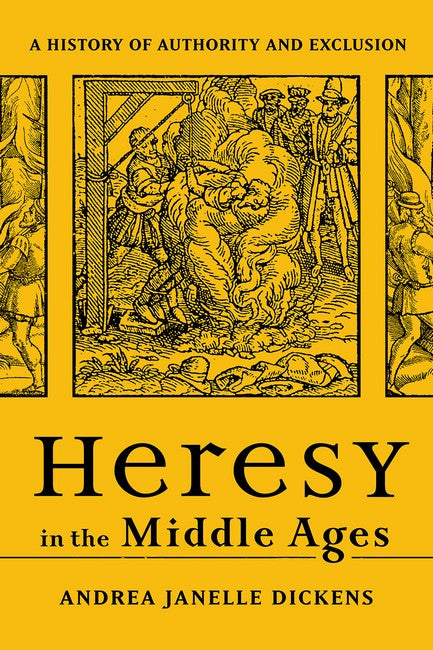Andrea Janelle Dickens is an assistant teaching professor at Arizona State University. Her work, including her previous book, The Female Mystic: Great Women Thinkers of the Middle Ages, focuses on groups outside mainstream medieval traditions.
Description
Introduction: Laying A Foundation For Heresy The Petrobrusians: The Monastic Influence on Heresy The Cathars: The Turn To Force Against Group Heresies The Waldensians: Heresy and Reunion The Beguines and Beghards: The Rhetoric of Defining A Heresy The Templars: Power, Publicity, and Authority in Heresy The Spiritual Franciscans: Apocalyptic Literature and Claims to Authority in Heresy Wyclif and the Lollards: The Academic and Public Face of Heresy The Hussites: The Socio-political Nexus of Heresy Late Medieval Witchcraft: The Movement Back Toward Individual Heresy Conclusions
Written with students in mind, Andrea Janelle Dickens's survey offers compelling case studies of religious movements ranging from the Petrobrusians to the Hussites and those accused of witchcraft. Combining a focus on the mentalities of persecutors with recovery of the voices and perspectives of a staggering variety of individuals and communities labeled as "heretics," Dickens resituates the condemned within the larger context of beliefs and practices in medieval Europe and considers on a case-by-case basis the factors which led to their repression. --Jessalynn Lea Bird, Saint Mary's College, Notre Dame, Indiana Dickens offers a valuable new survey of medieval heresy from the twelfth to the fifteenth centuries that offers important insights into the actual beliefs of the heretics, as well as into orthodox ecclesiastics' perceptions of them. This book also effectively explores the fine line between what those in the Middle Ages regarded as heretical and what they saw as saintly, and it provides a thoughtful evaluation of the ways in which the church used the growth of heresy, or the perception of that growth, as a means of establishing doctrinal and social control. --Michael Frassetto, University of Delaware

